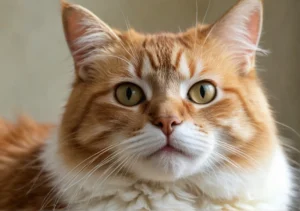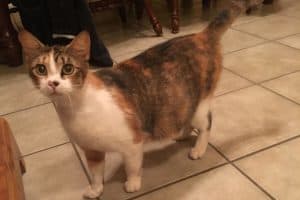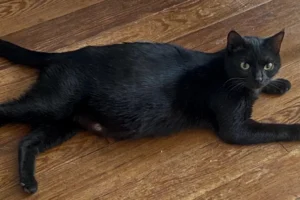Having noticed your cat’s nipples swelling, you may be wondering what could be causing this unusual occurrence. Let’s dive into the reasons behind why cats’ nipples swell.
When a female cat’s nipples swell, it is often a sign of pregnancy or impending birth. The hormonal changes that occur during pregnancy can cause the mammary glands to enlarge and the nipples to become more prominent.
Signs of Pregnancy in Cats
If you’ve noticed your cat’s nipples are swollen, it could be a sign of pregnancy. Other signs to look out for include increased appetite, weight gain, and behavioral changes such as nesting or restlessness. Your cat may also exhibit vomiting or morning sickness early in the pregnancy.
It’s essential to keep an eye on these symptoms, as early detection of pregnancy can help ensure the health and well-being of both the mother and potential kittens. If you suspect your cat may be pregnant, it’s vital to consult with a veterinarian for proper confirmation and guidance on caring for a pregnant cat.
Importance of Veterinary Consultation
Seeking professional veterinary advice is crucial if you suspect your cat is pregnant. A veterinarian can provide expert guidance on proper nutrition, prenatal care, and potential complications to watch out for during the pregnancy.
Additionally, a vet visit can help confirm the pregnancy and ensure that your cat receives the appropriate care she needs. By consulting with a veterinarian, you can ensure the health and well-being of both your pet and any potential kittens. Don’t hesitate to reach out to a professional for advice and support during this exciting time.
Remember, your furry friend’s health is of the utmost importance, so taking action early is key to a smooth and safe pregnancy.
False Pregnancy in Cats
Have you noticed your cat’s nipples swelling, but there’s no actual pregnancy in sight? This could be a case of false pregnancy, where your feline friend shows all the signs of being pregnant without actually carrying kittens. During a false pregnancy, a cat’s body may prepare for lactation, causing the nipples to swell and become more prominent. This can be a confusing time for both you and your cat, but rest assured, it is a common phenomenon that usually resolves on its own without any intervention. Just give your cat some extra love and attention during this period, and the swelling should subside in due time.
Complications During Pregnancy
While most cat pregnancies proceed smoothly, there are potential complications to be aware of, such as eclampsia or dystocia. Eclampsia, also known as milk fever, is a serious condition that can occur in nursing cats when they experience a sudden drop in blood calcium levels. Symptoms include restlessness, panting, muscle tremors, and even seizures. If you suspect eclampsia, seek immediate veterinary attention to prevent further complications. Dystocia, on the other hand, refers to difficult or prolonged labor, which can endanger both the mother and the kittens. Signs of dystocia include prolonged straining without delivering a kitten, weak or unproductive contractions, or excessive bleeding. If you notice these signs, contact your vet promptly for assistance. Stay vigilant during your cat’s pregnancy to catch any potential issues early and ensure a safe delivery for both mother and kittens.
Additional Unique Insight: – Remember to provide a warm, quiet, and comfortable birthing area for your pregnant cat to reduce stress and promote a smooth delivery process.
I hope this information proves helpful for you and your beloved cat. Stay informed and attentive during this special time to ensure a healthy and happy outcome for your furry family member.
Care and Nutrition for Pregnant Cats
When your cat’s nipples swell, it could be a sign of pregnancy. Providing proper care and nutrition during this time is crucial for the health of both the mother and her kittens. Ensure she has a quiet, warm, and safe nesting area to give birth. Monitor her closely for any signs of distress or complications.
Ensure your pregnant cat receives a high-quality, balanced diet rich in essential nutrients like protein and calcium for healthy development. Consult your veterinarian for specific dietary recommendations tailored to her needs. Encourage her to stay active with gentle exercise to maintain her muscle tone and overall health.
Ensure she has access to fresh water at all times, as hydration is vital during pregnancy. Scrutinize her for any signs of illness or discomfort and seek veterinary care if needed. Adequate care and nutrition will help your pregnant cat prepare for the arrival of her kittens.
Postpartum Care for Mother and Kittens
After your cat gives birth, it’s essential to provide postpartum care for both the mother and her kittens. Monitor the mother cat for any signs of infection, such as fever or discharge, and seek prompt veterinary attention if needed. Watch her closely for any signs of distress and ensure she is bonding well with her kittens.
Ensure the mother cat has a calm and quiet space to nurse her kittens. Regularly check on the kittens to monitor their weight gain and overall health. Provide a warm and safe environment for them to thrive.
Remember to continue feeding the mother cat a nutritious diet to support her milk production. Maintain a clean environment for the mother and kittens to prevent infections. By prioritizing postpartum care, you can help ensure the health and well-being of both the mother cat and her kittens.
- Keep the mother cat and kittens in a quiet room away from loud noises to reduce stress.
- Handle the kittens gently and avoid separating them from their mother too soon.
- Monitor the mother cat’s appetite and provide her with extra nutrients to support milk production.
Spaying and Neutering Benefits
When it comes to caring for your feline friend, spaying and neutering are essential steps to consider. Not only do these procedures help control the pet population, but they also have a myriad of health benefits for your cat. One of the main benefits of spaying and neutering is the prevention of unwanted pregnancies. By spaying your female cat or neutering your male cat, you eliminate the risk of them getting pregnant or impregnating another cat.
Moreover, these procedures can also reduce the risk of certain health issues such as uterine infections and certain types of cancers. By controlling your cat’s reproductive capabilities, you are ultimately improving their overall quality of life and ensuring they live a healthier, happier existence. So, if you notice your cat’s nipples swelling, it might be a good time to consider spaying or neutering to prevent any potential health issues in the future.
For more information on the benefits of spaying and neutering, you can visit the American Veterinary Medical Association’s website for detailed insights and resources.
By understanding the reasons behind why cats’ nipples swell, you can provide the necessary care and support for your feline companion during this crucial time.
Alex, a passionate animal lover, has experience in training and understanding animal behavior. As a proud pet parent to two dogs and three cats, he founded AnimalReport.net to share insights from animal experts and expand his knowledge of the animal kingdom.




